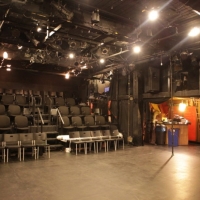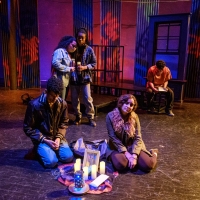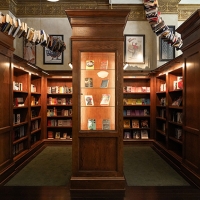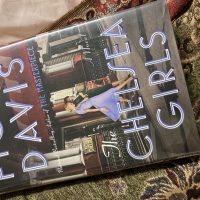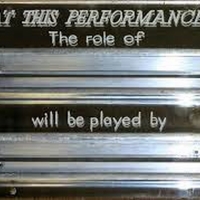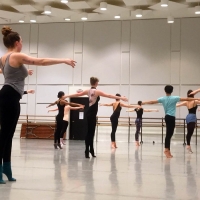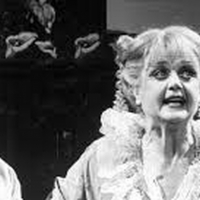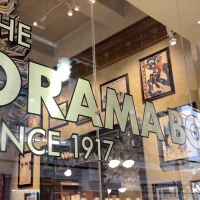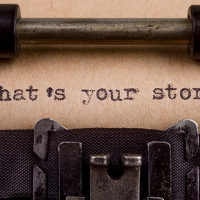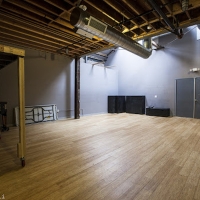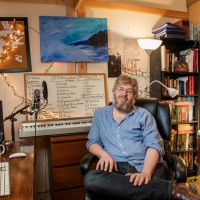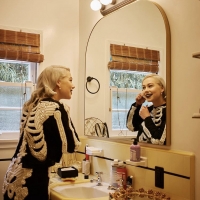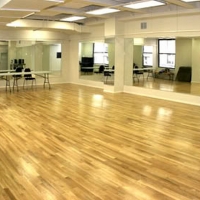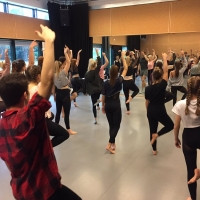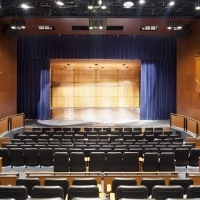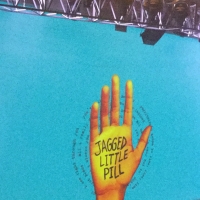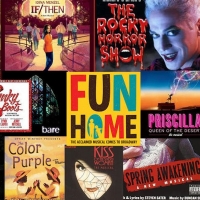Student Blogger: Meredith Muirhead
MOST POPULAR ARTICLES
December 7, 2022
In sociology, the third place is an environment in which we find comfort and familiarity that is separate from home (our first place) or work (our second place). Sociologist Ray Oldenburg defines the third place as “an anchor of community life that facilitates and fosters broader and more creative interaction.” Upon hearing that definition, it’s easy for us theatre artists to think of the theatre, despite the fact that it likely is our second place as well. But let’s step back for a second and look at this from an audience member’s perspective.
October 17, 2022
It goes back to the days of Vsevolod Meyerhold- theatre has a social responsibility; that is, theatre has the responsibility to lift the voices and tell the stories of every kind of person and every community. Theatre is the most magical form of storytelling, and the possibilities for just how these stories can be told are endless. Having just had the wonderful opportunity to see The Anthropologists’ No Pants in Tucson (a devised work by and for the queer and feminist community), I’ve started thinking about how much the theatre world needs more of this kind of work, this queer-focused and queer-based work. This is the kind of work whose main objective is to tell the stories of a community that still struggles to be heard. After learning that each vignette in this particular piece is based on true stories, I realized that there are probably just thousands of other stories that were never so much as examined that are just waiting to be told onstage.
June 2, 2022
Now that the school year has drawn to a close, many graduating high school seniors are preparing for their first year of college, which is no small task. Choosing to major in theatre is not for the faint of heart, but it definitely isn’t something to be scared of.
April 29, 2022
Every theatre student is always told to read more plays, but oftentimes, it's difficult to find something that holds our attention or seems right for us. After examining this trend among my fellow college theatre students for some time, I started to cobble together a list of play recommendations specifically tailored towards something all of us are very interested in: our zodiac signs! Now, I (a Scorpio) have offered a play recommendation for each of the twelve signs based on what I think they need most, so find your sun sign, check out the description, and happy play reading!
March 31, 2022
As actors, we're usually pretty busy day in and day out, but every so often we get just enough time to relax and curl up with a nice book. A fictional novel never fails as the best form of escape- we're not reading it to search for monologues or scenes to work. Rather, it's a chance for us to lose ourselves in a story while also resting our actor's brains for a bit. We're not responsible for telling the story when we have a book to read; we're simply letting the story come to us. Yet, despite the love we have for a good work of fiction in which we can dissolve ourselves, we do still search for something we can connect to and learn from within the fictional writing. These criteria point to one particular book that all actors should read, a 2019 novel titled The Chelsea Girls by Fiona Davis. This is a story of friendship, betrayal, feminism, freedom, and of course, theatre that provides a level of relatability along with its ability to satisfy anyone's craving for a beautiful piece of fiction.
February 16, 2022
Winter is the mortal enemy of many vocalists, crushing us with those frigid temperatures that seem to seep into our bones and leave us shivering even long after we’ve gone back indoors. The cold causes our bodies to hunch over, shiver, and contract in an innate effort to keep ourselves warm, and this certainly does not help in keeping our breath flowing properly. The cold air also dries out our vocal folds, which also does not help in that we need some moisture on the vocal folds in order to sing. Not to mention- doesn’t it seem like everyone is sick in the winter? It always seems like vocalists just have to struggle through the winter season, but believe it or not, it is possible to sound (and, most importantly feel) just as wonderful in the cold weather as we do in the warmer months.
January 17, 2022
In light of the recent surges of public appreciation for standbys, understudies, and swings on Broadway, plenty of theatre artists have discussed their vital importance in a show (I mean, shows can't happen without them), but not many have discussed why it's important to quash the idea of these performers being 'less than' the performers in principal roles and why there is no reason to be comparing a swing, understudy, or standby to the performer for whom they're covering.
December 7, 2021
You’re hard pressed to find a college student who doesn’t have any sort of issues with their body image, let alone a college student studying theatre. It’s sad but true. Society has set such toxic body standards that we particularly feel as actors because we’re literally representing society in our work, and this can have a major effect on our performance in classes or in rehearsals. It’s no secret that we need to be taking care of ourselves, like it or not, and that thin bodies aren’t the same as healthy bodies, but hey- all of us have days where it’s harder than usual to care for the bodies we’re in. Bad body image days (or weeks, it’s okay) happen, and they can be awful, but they’re nothing that can’t be conquered.
November 30, 2021
It’s common knowledge that most of us who now work in the arts were at the bottom of the food chain in grade school- we were “dorks,” we were “weirdos,” we were....well, I can’t really say everything we were called, as it wasn’t as refined as the first two examples. I was no exception to this, and I had some rather dark and difficult times because of this treatment. I was the smallest of my classmates with wild and frizzy hair, constant acne, and a voice that was much too big for my physical size, all of which combined themselves with my obvious passion for the performing arts to make me a target for torment. Theatre gave me that escape, being a community where not only could I slip into someone else’s skin for a while, but also a community where I was accepted while in my own skin. Stephen Sondheim, of course, has always been an essential part of theatre, and he very quickly became an essential part of my life as I delved deeper and deeper into this art form.
November 23, 2021
In the same way that a satisfying Thanksgiving dinner requires a great deal of attention to detail (cook the turkey at the right temperature, put just the right amount of salt in the pie crust, arrange the hors d’oeuvres in just the right way), a full theatre education requires a great deal of independent play reading. Sure, we’re all assigned plays to read in our classes, but those are only the tip of the iceberg. There is so much more to explore in terms of theatrical writing than Williams, Mamet, Miller, or Shakespeare, and not all of those works, if any, will be taught in most college theatre classes. College is the time where all of us are really finding ourselves, and it only makes sense to be finding out what material draws us in so that we can work on what we truly connect with.
October 20, 2021
Let’s face it- theatre can be hard. It’s hard when you’re a writer, it’s hard when you’re an actor, it’s hard when you’re a director, it’s hard when you’re a designer, and everything in between. When you’re an artist, you’re constantly working emotionally, mentally, and physically, and the work doesn’t always feel rewarding. After all, we create to make ourselves heard and seen, and how does it feel when the art we create is glossed over, dismissed, and ignored? How does it feel when the art that is being put forward doesn’t reflect us? Theatre truly is for everybody, so why is it so hard for trans and genderqueer theatre artists (even today!) to find their place? The reality of it is, there’s no excuse for why the works of trans and non-binary theatre artists are not given enough recognition. The best way to get that work out there, in all honesty, is to just keep going.
September 20, 2021
As actors, we’re always fighting the urge to compare ourselves to our fellow performers, whether we mean to or not. It’s just instinctive- all human beings naturally compare themselves to others because that’s what society has always driven us to do. An actor’s first rehearsal for a show is the time where the comparative thoughts manifest themselves just as much as they do in a callback or audition room, because we’re looking around at our fellow cast members and thinking, “Wow, I’m nowhere near as good as this person and that one,” or “I don’t know why I’m here. Everyone fits their role so perfectly and I’m still struggling.” This thought process, unfortunately, is not so much an example of humility as much as it is a drawback in the rehearsal space.
September 14, 2021
Broadway is officially back, to the joy of all theatre-makers and theatre-lovers. However, this isn’t the world in which Broadway existed before its intermission. In the past eighteen months, more and more people have come to realize that Broadway is not the be-all, end-all of theatre, and they’re recognizing that Broadway success does not automatically determine the quality of any work. In fact, Broadway isn’t exactly the place for new, non-traditional ideas.
August 24, 2021
After my previous blog about how jukebox musicals should not be looked down upon in the theatre world, I got to thinking about which of my favorite artists would have the best jukebox musicals. Here are six female artists from the twenty-first century whom I believe should write a musical or have a jukebox musical.
August 23, 2021
Whether you’re one of the many LaDuca-clad bodies swirling through Pearl Studios or a shaking fifteen-year-old in a community theatre lobby (or even a high-school hallway, watching the athletes barrel past as you sit on the floor outside the auditorium), the words “audition” and “callback” certainly trigger plenty of stress within you. You think of the roles you’re aiming for, or the spot you’re competing for, and your eyes turn towards the other actors waiting with you, all of whom are experiencing equal levels of stress, and the sense of competition is palpable. You forget that these people are your friends- you probably got coffee with a few of them yesterday, or even have plans with them afterwards. But in the waiting room, all camaraderie is lost. It’s an “every man for himself” environment.
July 16, 2021
As much as the industry preaches health and caring for the body and the whole “eight shows a week is no joke” mentality, performers’ bodies are expected to be thin. In reality, thinness hardly equals health- in my case, my “good body” at that audition was a body that had been victimized by self-induced starvation, self-harm, and overwork, and it hardly got me through a one-hour dance call. At this point, it’s a commonly known fact among performing arts students that this industry is a hotbed for disordered eating and body dysmorphia, which is a far cry from being healthy, so why do casting directors still standardize on thin bodies?
July 9, 2021
Let’s face it- most parents aren’t too pleased when their child says they want to pursue theatre in college. The usual concerns arise: will you have a job? What if you never “make it?” What “backup plan” do you have? How will you make your own money? And while these are valid concerns, there is much more to a theatre degree, whether it be performance or production, than meets the eye. Theatre degrees (and the process of pursuing them) are helpful in a myriad of ways, and those are not all based on Stanislavsky and stage combat.
July 1, 2021
Ah, yes. The jukebox musical. When most “theatre people” hear that term, the following reaction is normally one of some scorn or even disgust. It’s too often that jukebox musicals aren’t thought of as “real” theatre or “quality” theatre because the music isn’t original, and in some cases, the story is meant to fit the music as opposed to vice versa. However, after over a year without live theatre, it has become highly obvious that all works of theatre are worth equal appreciation, regardless of story, music, or any aspect. So as live theatre makes its return in a newer world, with more opportunities for new works, let’s not forget the jukebox musical.
June 9, 2021
As Pride Month kicks off, we all go to blast the Kinky Boots cast recording on Spotify as we get ready for whatever pride events we'll be attending, wanting to acknowledge a pride month musical.
Videos


